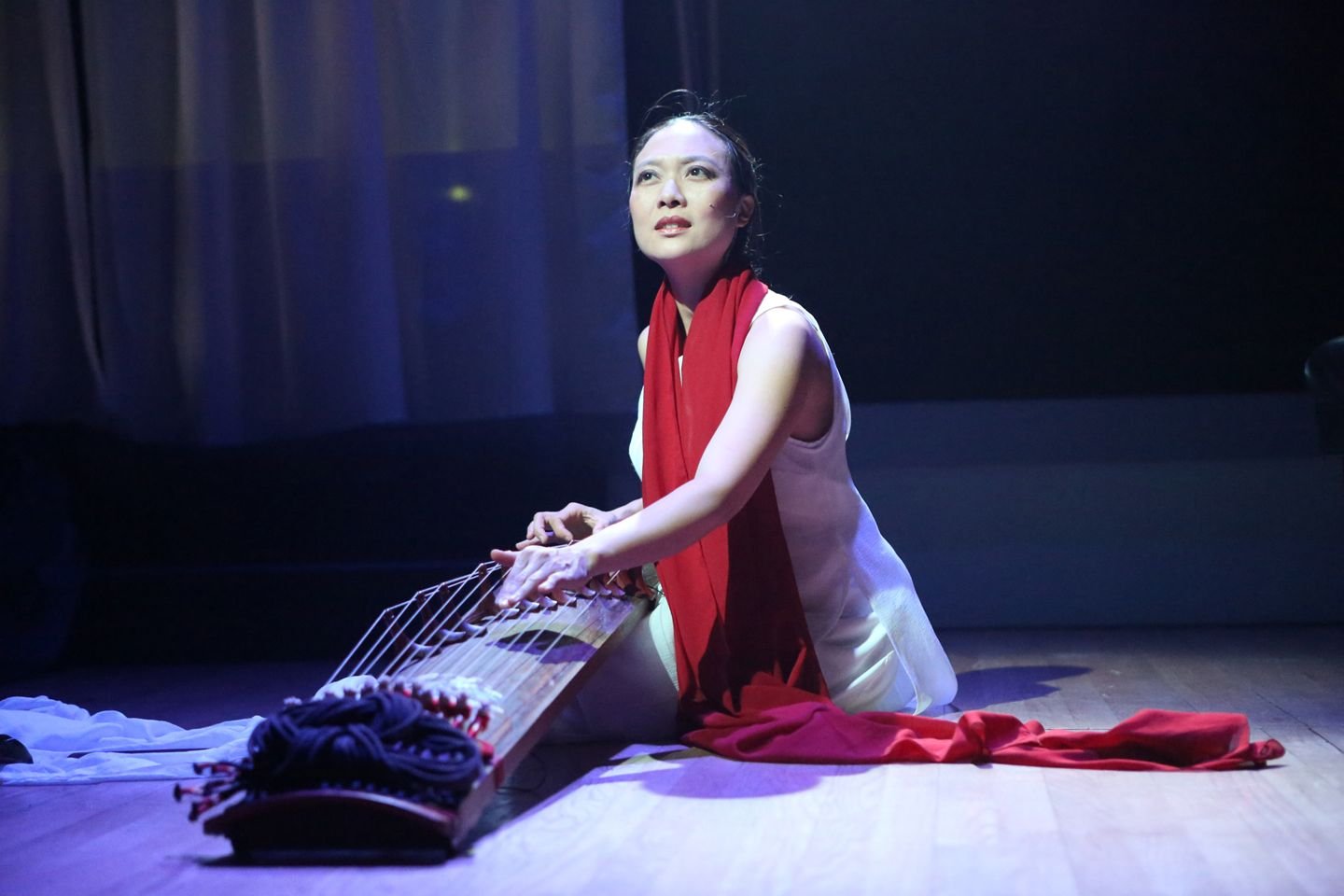Life Has No Boundaries with Jen Shyu: “It’s All An Experiment”

Photo courtesy of Steven Schreiber
Pao: Here at WHRB Cambridge, we were so excited to speak to the very multitalented Jen Shyu. She's a composer, vocalist, multi-instrumentalist and dancer, and she’s also a Stanford graduate. She's a classically trained opera singer, ballet dancer, pianist, and violinist. She has also worked extensively on traditional music and dance all over the world. She's produced seven albums and is also known for her virtuosic jazz vocals. Wow. Thank you so much for speaking with us today, Jen.
Shyu: It's my pleasure. It's great to talk to you.
Pao: I have so much I want to ask you, because you're one of the most talented performing artists I have ever come across. Let’s start with your talk at Harvard tomorrow [October 15th, 2018]. Your talk is titled Nine Doors: Life Has No Boundaries – Projecting Tradition into the Future and the Creative Voice Within. Can you speak a little bit more about that event?
Shyu: Yes! I'm going to be doing a mixture of performing little excerpts as well as showing field work – my favorite or most impactful videos that have influenced my work and especially related to this current solo work that I'm touring called Nine Doors**.** As an artist – as a creative, generative artist – there's so much background [required], like stepping stones…I'll be showing video of my own video footage from East Timor, Taiwan, Indonesia, South Korea and Japan. There's so much: there's footage of my teachers, but also of rituals and ceremonies that were very rare…Like there’s this particular ceremony in Taiwan which is only performed once every five years in that village…So I have footage from that, and I’ll talk about how all that inspired new work and contemporary work.
The title of the talk is Life Has No Boundaries. That is actually a line of poetry from a late Taiwanese poet Edward Cheng who was a mentor of mine. That's the line in his poem “Contemplation”: Life has no boundaries when every place can be home. It closes the poem, and it is the way I think about my work in terms of all the cultural references, and all the languages, and all the disciplines, and also traditional vs. contemporary – all those distinctions.
I like to subvert those distinctions, but I truly believe that the process must come from, at least for me, very deep research: a very deep internalization process of learning from a teacher as if I were a baby learning from nothing. It's really a challenge – an exciting challenge – for me to try and approach these traditions. For instance, sindhen is the art form of the singing that accompanies the Javanese Gamelan in particular. That art form, first of all, uses completely different scales, different modes. The sense of time is so different. However, there's a lot that's similar, so I really remember when I was learning Charlie Parker solos, the process is very similar – of internalizing [the melody] in terms of listening and repeating, just as we learn language. However, Charlie Parker was dealing with 12 tones, notes: A-B-C-D, and then in Java, you’re dealing with numbers: six, one, two, three, five, six. And they sound completely different.
It's being able to see sound from all these different perspectives. I love to challenge myself to be able to do so. What's also great is that you have the ability to shift your mindset. It's like looking at those optical illusions…to be able to go back and forth, and sometimes…[one can ask,] can you see both at the same time? Actually, it sometimes helps to have this other perspective as a foil to the other way of thinking, and you can kind of think in two ways at once. And that's why I love to blend. For instance, in one piece that I'll talk about [in the talk,] I created a piece where I'm singing in English, but vocally, I'm singing in the tradition of Korean pansori, technique-wise. But the story itself is actually from the Wehali Kingdom of Timor. So there's three layers in there. You're actually in the three places at once.
So it's all an experiment. It's really just an experiment. But I believe that out of deep study and deep respect for whatever you encounter – and the keyword is deep – that means, okay, I have to learn a language! But I think with that deep study, the inspiration will be much deeper, and we'll go much deeper, and then, there's the most important level, which is the human level. So it's my relationship with my teacher, with my relationship with this gamelan community, with my peers from Java, and with my fellow students who are learning with me. Those connections are the most inspiring in our lives.
You can find more of Jen Shyu’s music here. Allison Pao is a radio host for WHRB Classical. This semester (Fall 2018), you can hear her on-air on Sundays 3-6pm.